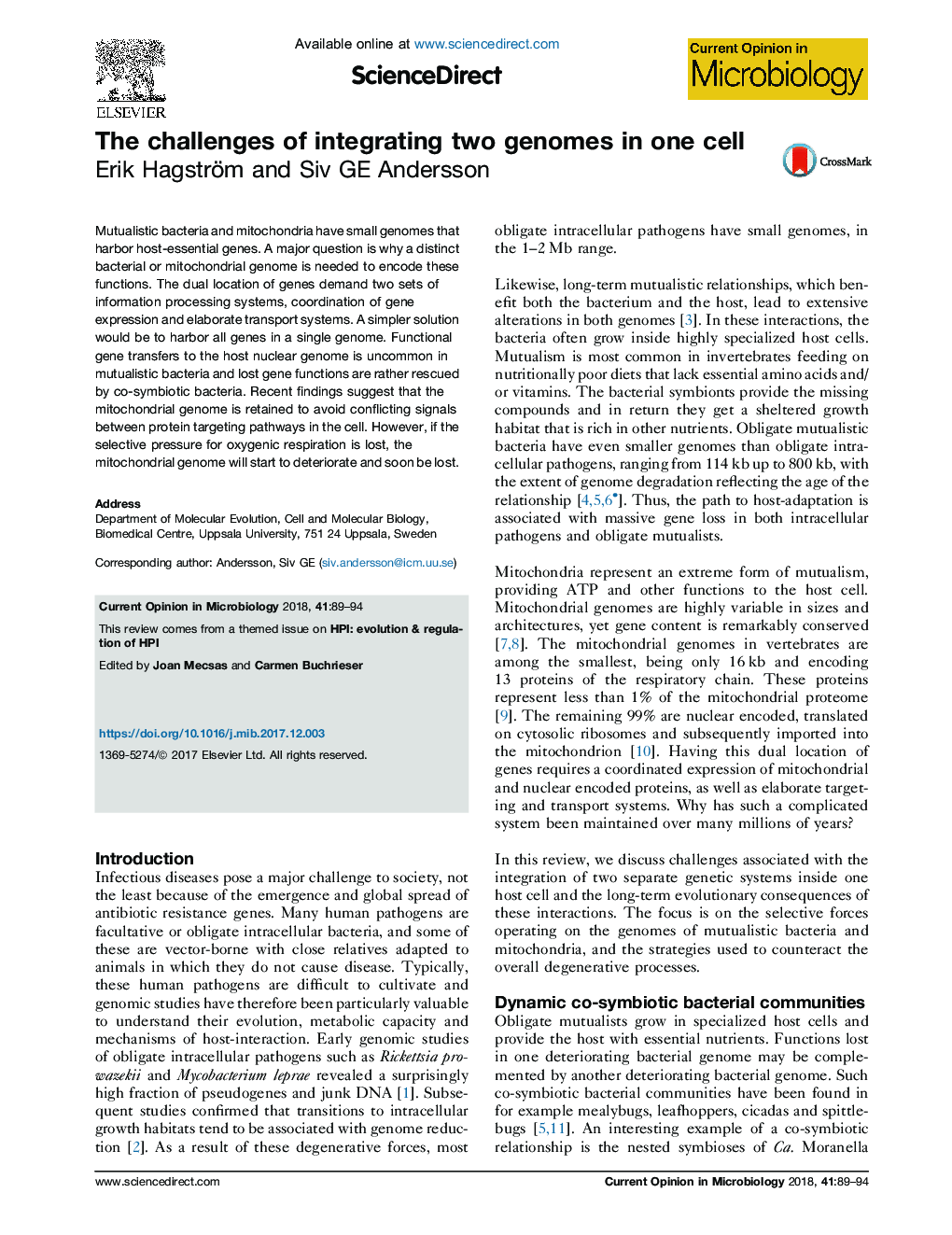| Article ID | Journal | Published Year | Pages | File Type |
|---|---|---|---|---|
| 8745103 | Current Opinion in Microbiology | 2018 | 6 Pages |
Abstract
Mutualistic bacteria and mitochondria have small genomes that harbor host-essential genes. A major question is why a distinct bacterial or mitochondrial genome is needed to encode these functions. The dual location of genes demand two sets of information processing systems, coordination of gene expression and elaborate transport systems. A simpler solution would be to harbor all genes in a single genome. Functional gene transfers to the host nuclear genome is uncommon in mutualistic bacteria and lost gene functions are rather rescued by co-symbiotic bacteria. Recent findings suggest that the mitochondrial genome is retained to avoid conflicting signals between protein targeting pathways in the cell. However, if the selective pressure for oxygenic respiration is lost, the mitochondrial genome will start to deteriorate and soon be lost.
Related Topics
Life Sciences
Immunology and Microbiology
Microbiology
Authors
Erik Hagström, Siv GE Andersson,
